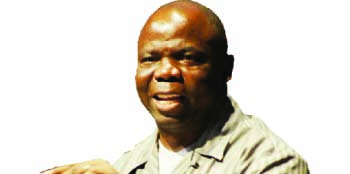By CHRISTINE MWAABA –
January 5, 2016, will linger on the minds of many as a historical day that changed the political landscape in the country.
It was the day President Edgar Lungu assented to the Constitution Amendment Bill which meant constitutional amendments on issues that border on the electoral process are now law.
One of the major issues that had raised concern was the matter relating to members of Parliament (MPs)crossing the floor of the House by resigning from one political party and then seeking adoption in order to reclaim their seats on the ticket of another party.
This led to what most people felt were high numbers of by-elections that cost the nation large sums of money.
Through this regulation, a new political era has been ushered into the country that will bring about consistency among the MPs.
Without any shred of doubt, this measure will instill discipline in the many party defectors.
It seems before this amendment, elected members of Parliament saw nothing wrong in running away from their political parties and ‘betraying’ their electorate.
Democratic Governance and Human Rights Advocates president Gerald Mutelo is happy that the uncontrolled crossing of the floor has been adequately dealt with.
He says the amended Constitution will greatly enhance democracy and promote the prudent use of public resources which used to go towards funding by-elections created by defections.
Similarly, Law Association of Zambia (LAZ) president George Chisanga says restricting the crossing of the floor in Parliament will limit the trend that has been going on among the MPs some of whom have been stepping down and defecting to other political parties with the hope of being adopted to re-contest their seats.
Mr Chisanga says in past years, opposition MPs have mostly defected to the ruling party necessitating by-elections.
He explains that crossing of the floor is a term used to describe leaving one’s party entirely and joining another party, such as leaving an opposition party to support the Government (or vice versa), or even leaving one opposition party to join another.
He explains that the amended Constitution Bill, article 72(b) stipulates that members of Parliament will not be eligible to cross the floor until they end their tenure of office.
The new law restrains members of Parliament crossing from one party to another which in turn stabilises the political system.
“This is one occurrence that has to be avoided so that people involved should genuinely care for the electorate and not practise politics that benefit only them,” he said.
Previously, resources meant for needy areas such as education, health and other social and economical sectors were being wasted on funding the Electoral Commission of Zambia (ECZ) to organise by-elections that will now be avoided with the new law in place.
This Constitutional provision will surely bring tangible development to the nation.
Mr Chisanga says the country has witnessed a number of political leaders who have defected from the parties that initially sponsored them to Parliament.
The amendment, therefore, takes away this problem among political actors.
It also helps in having MPs that can uphold people’s confidence to represent them in Parliament.
Besides that, this will help build unified political parties with whom one can identify and stand by loyally.
Mr Chisanga says the linkage between the crossing of the floor and the electoral system is now covered with the latest law.
He says before the law was implemented, the media would often report on the many cases of Parliamentarians who would defect from their original political parties, thereby leading to the holding of
by-elections.
This problem has for a long time been a concern by the voting public who felt that the practice was affecting the stability of the political system.
The crossing of floors weakened party cohesion and also influenced certain goals which were specifically targeted at certain personalities and not for the common good of the people.
Movement for Multi-Party Democracy (MMD) president Nervers Mumba says he is pleased to have been part of the historical effort to realise and fulfill the Zambian dream.
Dr Mumba says the crossing of the floor by the members of Parliament, which is among other amended clauses in Constitution, will prevent party defections, create order in Parliament and eliminate costly and unnecessary by-elections.
“This regulation is of paramount importance since it is directly hinged on elections and a vital inclusion for us as a country going forward,” he said.
He says the amendment to the Constitution is a positive step for the development of democracy that will create a new brand of politics.
The President in his speech during the signing of the new Constitution said: “Time comes in the life of the nation when we abandon mechanical politics that always programmes the opposition to
see nothing but the opposite.
“We must renew people’s trust in politics and not diminish it by promise and policy summersaults,” he said.
This statement from the Head of State clearly indicates that indeed the country is moving towards a new approach to politics.
Bible Gospel in Africa (BIGOCA) overseer Peter Ndhlovu says this particular clause will challenge Zambian politicians to stop practising what he termed “politics of the belly” if they genuinely care for the electorate.
He says the provision will facilitate reliability and devotion in Parliament and prevent individuals that have no vision for the electorate from taking advantage.
“People want representatives they can trust and not cat-and-rat chasing among those with vested ambitions,” he says.
He believes that public funds should be channelled towards development activities such as education and health and not spent on organising endless by-elections because of defections among MPs.
The practice of members of parliament crossing the floor left the electorate “out in the cold” mainly because the parliamentarians involved did not consult with the electorate before deciding to leave.
The law will most certainly arrest this situation and enhance the effectiveness of party systems and representative democracy, and in turn consolidate democratic governance.







